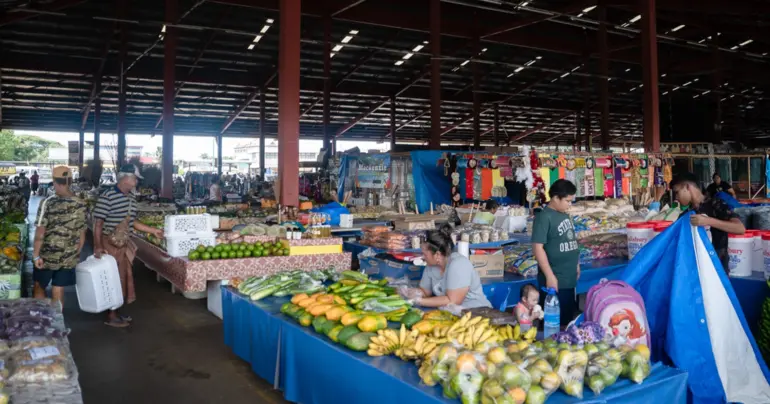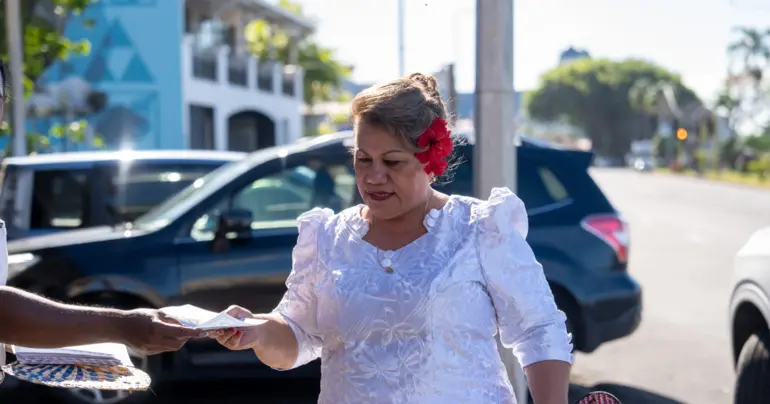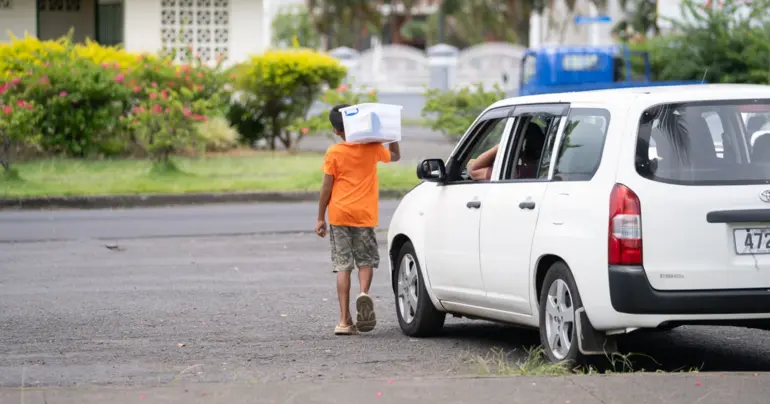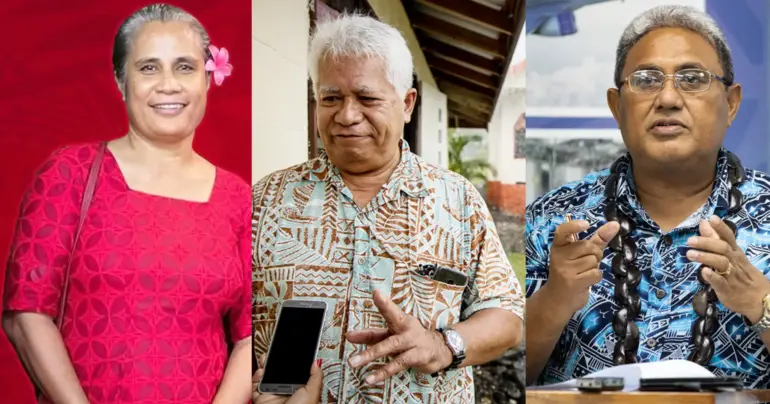The Orchids of P.N.G. prove sport is a gender equality tool
 By Sapeer Mayron
•
08 July 2019, 3:00PM
By Sapeer Mayron
•
08 July 2019, 3:00PM
In some Pacific Islands, the roles of women are still restricted to the home, and their social mobility is limited. But sport might be the solution to that, both for uplifting women, and for changing societal attitudes about them.
Recent release Power Meri is a documentary following the first Papua New Guinea rugby league team from its inception to their first ever World Cup in Australia. And with rugby league nines added to the Pacific Games schedule in January this year, some of those players are in Samoa this week.
Vero Waula and Joan Kuman are playing, led by trainer Dela Audama who was also in that first ever women’s squad, established in 2016.
Power Meri director Joanna Lester said when she moved to Papua New Guinea in 2014 to work with the National Rugby League of Australia (N.R.L) on an Australian Government funded rugby league program, she saw how the sport can be used to tackle social issues.
“There are so many organisations working in Papua New Guinea to address gender issues and improve opportunities for women but sport is one of the most popular and resonant things in the country and that people were not making the most of that,” she said.
And while several years ago, international development organisations did not see the value of sport for their work, Ms Lester believes that is beginning to change.
The Pacific Games helps them see a relationship between sport and development, and how “sport can have a wider impact than just on the field and just on those who participate.”
In the case of the Papua New Guinea Orchids, the women of that first squad immediately benefited from joining the team. The documentary reveals how wearing their nation’s jersey and representing home internationally empowered the women to take their lives into their hands.
For some, that meant feeling confident to leave their children with family to travel with the team. For others, it was choosing to stand up for themselves when negative feedback came their way.
For Papua New Guinean’s Facebook is the home of public discourse, Ms Lester said. And when the P.N.G Orchids first bloomed, Facebook was also the home of many public attacks.
The film artfully scrolls cruel Facebook comments across the screen sporadically throughout the film, showing the audience how Papua New Guinea felt about the Orchids in the beginning.
“These women are embarrassing us,” one comment read, when the team played a test match against the Australian Jillaroos.
The comments have no names, and some have been edited for clarity or translated from Pidgin, but some people may well recognise their own comments in the film.
“Realistically, people will say those things on Facebook or to their friends but are very reluctant to admit it on camera,” Ms Lester said.
“It was a more accurate way to reflect some of the things people were saying.”
N.R.L players have said they also experience negative comments and are glad to see the conversation about online abuse as part of the film.
A lot of the abuse may have been prevented if more people were patient with the team and let them grow and improve, just like the men’s teams. Ms Lester said the men’s Papua New Guinea rugby league team did not win a game for years.
“The women’s teams are at that same starting off stage but we know things will progress faster,” she said.
“Now, 40, 50 years on everything does progress faster in terms of high performance and coaching, the level of expertise that Pacific teams eventually get access to.
“You can’t be the world champions overnight, everything has to start somewhere, and I would encourage relatively new women’s sports teams in the Pacific to think like that.”
In order to develop at a normal and encouraging pace, Pacific teams should seek out Pacific opposition and grow together, she added.
The P.N.G Orchids compete against established teams like Australia, New Zealand and England, when they could be playing Vanuatu or the Solomon Islands who have also recently built women’s teams.
Today, Ms Lester is the media and strategic communications adviser for the Pacific Sports Partnerships program of the Australian Government, managed by global services firm G.H.D, and previously helped establish the Australian Broadcasting Cooperation Women in News and Sport program (W.I.N.S).
W.I.N.S was established in 2016 and works to build up Pacific female sports reporters. The 2017 Vanuatu edition of the workshop led to the creation of the Games News Service to improve coverage access for international media of Pacific Events.
Two reporters from that service, Christel Homu and Melissa Fare are in Samoa for the Pacific Games, funded by the Australian High Commission.
“Every time the Pacific Games are in another country there are often a lot of young people in media roles who have never been to the Games before,” Ms Lester said.
“This is a wonderful opportunity to bring over some young but experienced female sports journalists from Vanuatu to support the coverage.”
She said the program has been a success bringing up not only the amount of female sports reporters but improving the level of coverage on women’s sports.
“Even though it was only reached a small number of people so far, given that most Pacific countries only have a small number of sports journalists it’s actually starting to make an impact.
“It will be very interesting to see at this Pacific Games what sort of stories about women’s sports and female athletes we see. I think it will be quite a progression from last time.”
Female reporters are more open to covering athlete’s backstories in ways men either hadn’t considered or maybe are culturally hindered from doing. And through W.I.N.S, women have been exposed to podcasting or sports commentary for quite often the first time.
“It has created a small but significant number of women who have gone back to their media organisations, and in some cases changed jobs so had an impact on more than one organisation, and known that sports journalism is a place for them,” Ms Lester said.
Power Meri is available to communities for screenings. Contact the Australian High Commission for more information.
Tags
 By Sapeer Mayron
•
08 July 2019, 3:00PM
By Sapeer Mayron
•
08 July 2019, 3:00PM











